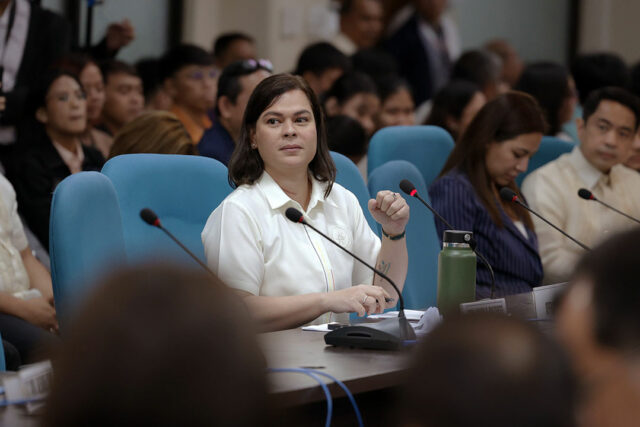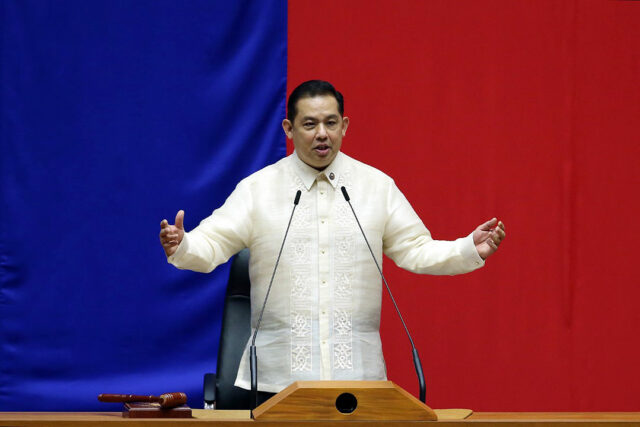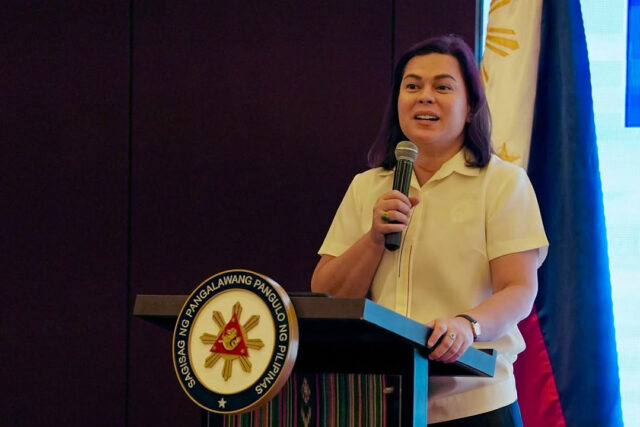OVP spox says no confidential funds in 2026 budget

THE OFFICE of the Vice-President (OVP) on Wednesday said that it would no longer seek confidential and intelligence funds for its 2026 budget, its spokesperson said, amid questions over Vice-President Sara Duterte-Carpio’s 2022 secret fund expenditure.
“There are no confidential funds, we did not request that,” OVP Spokesperson Ruth B. Castelo told reporters, as the Department of Budget and Management (DBM) hiked the OVP’s budget to P903 million from the initial P803.6 million the agency allocated for 2026.
Ms. Castelo added that the almost P100-million increase will be used for the hiring of more personnel and the purchase of information technology (IT) equipment to improve its office functions.
“We requested for additional personnel services — of course, there is a cost to the additional employees — to fulfill the functions and other IT equipment,” she said.
Party-list Rep. Renee Louise M. Co said that the VP must first prove her innocence before granting the OVP a budget increase for 2026.
“We want accountability, not just delicadeza. Confidential or not, we cannot entrust the larger budget to VP Sara because the identity of Mary Grace Piattos and other corruption anomalies are still unanswered,” she said in a statement.
“Either prove her innocence in the impeachment trial first or resign from the OVP before a budget increase can be justified.”
The House of Representative had held an inquiry over Ms. Duterte’s alleged misuse of confidential funds allocated for the OVP in 2022 and the Department of Education, when she sat as its secretary in 2023.
This is also among the charges against Ms. Duterte when she was impeached by more than 200 congressmen last February. She has denied any wrongdoing.
Her other ouster charges include unexplained wealth, and plotting the assassination of President Ferdinand R. Marcos, Jr., his wife and the Speaker. Her impeachment trial awaits in the Senate.
Meanwhile, Ms. Castelo added that the Commission on Audit (CoA) had given the OVP an unmodified audit opinion for its 2024 annual audit report.
“Unmodified opinion means that the financial statements were fairly presented. It is honest, it’s transparent,” she said, noting an 85.6% utilization rate for its 2024 budget.
The OVP said that state auditors had affirmed that financial statements within the 2024 Annual Audit Report were “accurate, reliable, and compliant with applicable laws, regulations, and accounting standards.”
An unmodified opinion is given when auditors conclude that the financial statements, as a whole, are free from material mis-statements, which could arise from either error or fraud. — Adrian H. Halili











